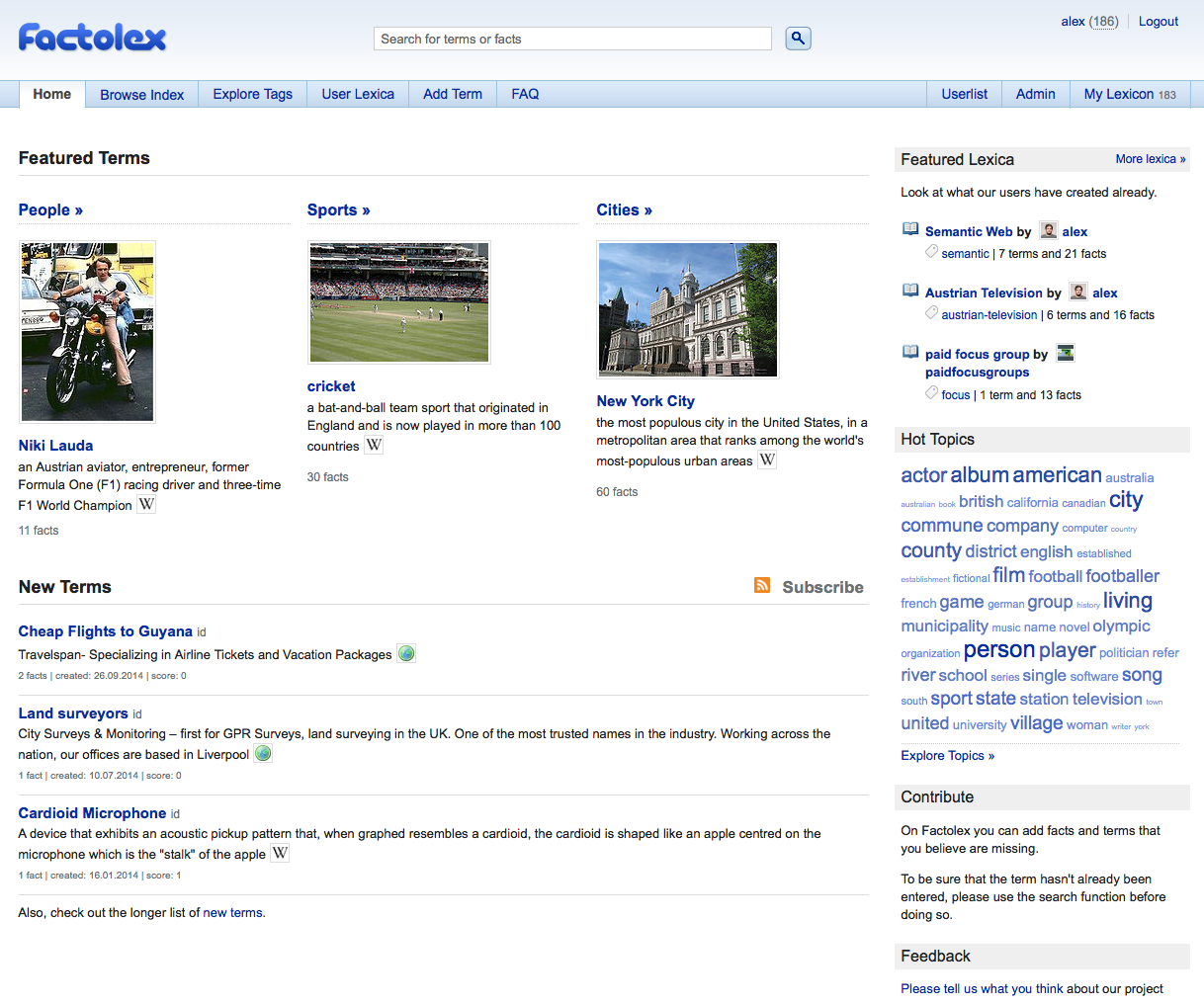

Factolex was created in 2007 by Alexander Kirk and Nader Cserny as a site dedicated to facts which could be organized into individual lexica.
The facts were automatically gathered and processed from a few trusted sources, such as Wikipedia. and offered users to select the facts they thought were most important for a term. This both supplied a ranking for facts across users as well as building up a lexicon of individual definitions for terms by the users.
Below you can see some screenshots of the site when it was live. The site existed in both English and German.
Factolex is a community-powered fact lexicon that enables you to build your own lexicon.
By ticking the checkboxes you can select the facts that describe the term best for you. This will create your invidiual explanation for the term and build your own lexicon. Also adding your own terms and facts is quick and easy.
As everyone contributes with their terms, facts and selections, the lexicon gets better. The more people find a fact important, the higher it appears in the list, the quicker you can understand what the term is about.
At Factolex we aim at explaining terms at a different level than Wikipedia. You go to Factolex for the essential facts about a term and then move on to the source of the fact (this might be Wikipedia) that is particularly interesting to you.
As another aspect, Factolex tries to embrace the democratic nature of the users acting together, everyone can contribute. You don't need deep knowledge of the syntax or rules that apply to the lexicon in order to help.
Furthermore, we think that on Factolex more terms deserve to be included. It is not uncommon that on Wikipedia terms are removed soon after being added by users, because powerful Wikipedia users think they are not relevant. Not so on Factolex: if the term is only of niche importance, it will appear lower on the list than more important terms with the same name.
Factolex divides knowledge into short texts: facts. While this might limit the depth of the contained knowledge, it also makes knowledge easier to handle.
By clicking the checkboxes next to a fact, users can create their own lexicon, "the world according to User X".
Factolex then uses these small user contributions to rank the facts for a term. If it all works out nicely, the top fact will already define a term pretty well, giving you an instant answer to what it is about.
With Factolex we want to bring knowledge into a form in which it is easier to handle.
Encyclopedias contain a great deal of knowledge, but it is all "captured" in long texts. That makes it very difficult to leverage that knowledge in situations where there are certain constraints, such as limited time and space.
By providing structural guidance we make it easy to contribute (you can already help by clicking a checkbox), while you can also benefit through your own contribution (clicking the checkboxes builds your personal lexicon).